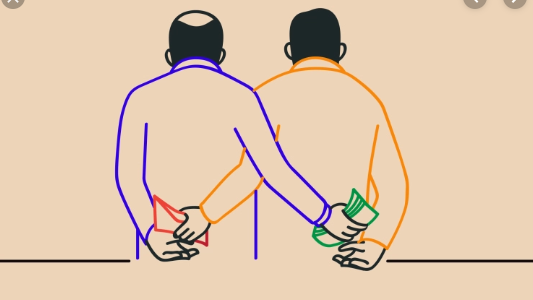After 9/11 psychological militant assault, the responses against Muslims in American culture have changed radically in America. Outrageous safety efforts in each part of American life (correspondences, transportation), stereotyping noticeable Muslims as psychological militants and the opening of Guantanamo Bay (which is itself an image of post 9/11 measures) all occurred after the fear based oppressor assault on the World Trade Center. (Seval, Aumeerally) I am contending that these intense changes against a gathering of individuals in this setting Muslims, can't be incited by a solitary assault. I am investigating the impacts of stories about "the other" and how it is gotten from past clashes and contemporary media. Prior to 9/11, there was as yet pressure between the American character and "the other". The misrecognition of the Eastern culture has caused a distance of settlers in America. To comprehend the misrecognition of an underestimated gathering of individuals, the connection between the oppressor and the persecuted must be comprehended. In The Reluctant Fundamentalist, Mohsin Hamid recounts to the account of a youngster, Changez who moves to America for instruction, yet he understands that he is an "outsider" in this land after 9/11 assault occurs. This book is significant for the dialog of migrant distance since it gives an opportunity for "the other" to tell his own account and finds the reasons why an outsider gets estranged despite the fact that they are experiencing the American dream. I additionally uncover the contrast among toleration and acknowledgment of the Other in American culture pre-9/11 as a proof to my contention. All in all, I answer the inquiries "What is the legend of the other/the fantasy of Orientalism?" and "How does the main individual account style utilized by Hamid in The Reluctant Fundamentalist influence the legend of 'the other'? I contend that the aberrant dismissal of Changez from the USA is brought about by distortion of "the other" in the Western culture. Said contends that the West has distinguished itself as something contrary to the East. "The Orient has characterized Europe (or the West) as its differentiating picture, thought, character, understanding" (Said 1). As per Said, distancing the East is a method for recognizing the West. This rise of "the other" is the motivation behind why foreigners are not acknowledged and gotten distanced in the Western culture. The strain between the East and the West was available before 9/11 however it just turned out to be increasingly conspicuous after the assault. I imagine that, the assault was just a limit among outsiders and the American culture.
The Myth of the Other
Legends are the manner in which we comprehend reality with the assistance of stories. Fantasies may get acknowledged as truth over the span of time. Tolerating legends as certainties is a hazardous way that prompts stereotyping or dehumanizing a gathering of individuals. Edward Said contends that Orientalism is a perilous legend expounded on the Eastern civic establishments by the West. There is a power dynamic in building a legend since history is composed by victors. History in this setting can be acknowledged as the realities that shape our system of contemplating others. As per Said, Muslims are delineated as a compromising other by the West. Islam is delineated as obsessive, furious and brutal. This delineation has a great deal to do with pioneer history. The West dealt with the East during frontier times, and that relationship is conveyed into the contemporary occasions. (Barsamian 54) Overall in the book Changez never expresses that he is a Muslim, yet the Western peruser takes the Pakistani character and places him in this fantasy where everybody from the East is the equivalent. I am testing the Western stories about the East which is called Orientalism. Orientalism is a term utilized for portraying the East, particularly with regards to writing, workmanship and culture. Said gives an alternate meaning of orientalism in his celebrated book "Orientalism" which considers the power relations between the East and the West. "Orientalism can be examined and broke down as the corporate foundation for managing the Orient—managing it by owning expressions about it, approving perspectives on it, portraying it, by showing it, settling it, governing over it: to put it plainly, Orientalism as a Western style for commanding, rebuilding, and having authority over the Orient." (Said 11)
I contend that the fantasy encompassing the East is kept up by the Western media in the contemporary occasions. In the supper scene with Changez and Erica's folks, Erica's father makes some mean comments about Pakistan. His comments are just identified with real information he saw on the news rather than an endeavor to become more acquainted with the area elements and their political culture. "I felt myself harness. There was nothing obviously shocking in what he had said; to be sure, his was a synopsis with some information, much like the short news things on the first page of The Wall Street Journal, which I had as of late perused." (Hamid 63) include stuff
Hamid challenges Orientalism by putting Changez – a Pakistani "hesitant fundamentalist" as the story teller around a 9/11 story. American peruser is hushed by Hamid's first-individual story style. (Seval 102) Changez does the intuition for the two gatherings by influencing the peruser's psyche. "Ok, I see I have frightened you. Try not to be terrified by my facial hair: I am an admirer of America." (Hamid 1) By utilizing this method Hamid gets the generalizations in perusers' brains, and regardless of whether those generalizations were not there from the outset, he puts them inside the psyche of the peruser (which is practically similar to a mind game).


